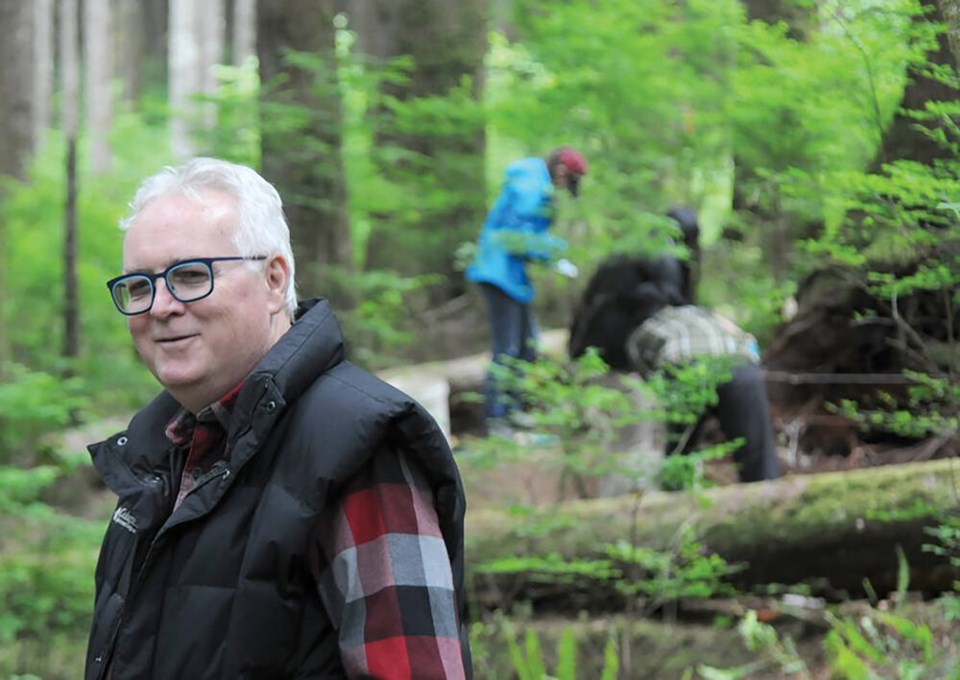Science
Capilano University Professor Chronicles Archaeological History

Bob Muckle, a professor at Capilano University, has released a new book titled Once Upon This Land, which aims to clarify the archaeological history of Canada from the Ice Age to the present day, including the impacts of COVID-19. This work presents a comprehensive account of the human and environmental interactions that have shaped the country’s landscape and cultural heritage.
Muckle’s book is divided into several sections, each focusing on different eras and significant events in Canadian history. It begins with the Ice Age, detailing how early populations adapted to their environments and the shifts in climate that influenced their lifestyles. As the narrative progresses, Muckle explores the arrival of European settlers and the profound changes that followed, including the displacement of Indigenous peoples.
Bridging Past and Present
One of the key features of Once Upon This Land is its emphasis on the connections between historical events and contemporary issues. Muckle highlights how past decisions have led to current challenges, particularly regarding land use and environmental management. He argues that understanding history is crucial for addressing modern problems, such as climate change and biodiversity loss.
The book also examines the archaeological methods used in Canada, illustrating how they have evolved over time. Muckle provides insights into his own experiences in the field, offering readers a glimpse into the rigorous process of uncovering and interpreting artifacts. He emphasizes the importance of collaboration with Indigenous communities, stating that their knowledge is invaluable in understanding the full scope of Canada’s archaeological record.
A Response to Current Events
Published in the wake of the global pandemic, Muckle’s work also reflects on how COVID-19 has affected archaeological practices and research. He notes that the pandemic has disrupted fieldwork and access to historical sites, posing new challenges for researchers. Despite these obstacles, Muckle remains optimistic about the future of archaeology in Canada, believing that the lessons learned during this time will lead to more resilient and adaptive methodologies.
The book has received positive feedback from both academics and general readers. Critics praise its engaging writing style and the way it makes complex historical concepts accessible. Muckle’s ability to weave together various threads of Canadian history into a cohesive narrative resonates deeply, particularly as the nation continues to grapple with its identity and the legacies of its past.
In conclusion, Once Upon This Land stands as a significant contribution to the field of archaeology and a vital resource for anyone interested in understanding the historical context of modern Canada. Bob Muckle’s work not only documents the past but also encourages readers to reflect on how history shapes our present and future.
-

 Science3 months ago
Science3 months agoToyoake City Proposes Daily Two-Hour Smartphone Use Limit
-

 Top Stories3 months ago
Top Stories3 months agoPedestrian Fatally Injured in Esquimalt Collision on August 14
-

 Health3 months ago
Health3 months agoB.C. Review Reveals Urgent Need for Rare-Disease Drug Reforms
-

 Technology3 months ago
Technology3 months agoDark Adventure Game “Bye Sweet Carole” Set for October Release
-

 World3 months ago
World3 months agoJimmy Lai’s Defense Challenges Charges Under National Security Law
-

 Lifestyle3 months ago
Lifestyle3 months agoVictoria’s Pop-Up Shop Shines Light on B.C.’s Wolf Cull
-

 Technology3 months ago
Technology3 months agoKonami Revives Iconic Metal Gear Solid Delta Ahead of Release
-

 Technology3 months ago
Technology3 months agoApple Expands Self-Service Repair Program to Canada
-

 Technology3 months ago
Technology3 months agoSnapmaker U1 Color 3D Printer Redefines Speed and Sustainability
-

 Technology3 months ago
Technology3 months agoAION Folding Knife: Redefining EDC Design with Premium Materials
-

 Business3 months ago
Business3 months agoGordon Murray Automotive Unveils S1 LM and Le Mans GTR at Monterey
-

 Technology3 months ago
Technology3 months agoSolve Today’s Wordle Challenge: Hints and Answer for August 19









